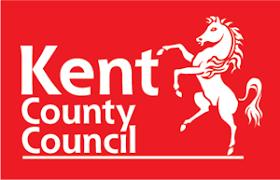Kent Test and KS2 Tuition
One-to-One Home Tutoring
to Prepare for the 2026 and 2027 Kent Test 11+
2025 Kent Test Preparation Deadline for current Year5s
Countdown to the 2025 Kent Test
Click on the button to compare Kent Secondary Schools Performance
Kent Test Tuition
11+ Tutor ¦ KS2 ¦ Kent Test ¦ Medway Test ¦ ISEB Common Entrance Exam ¦ SATs
After School Home Tutoring in
Spoken English
Extended Writing
English Comprehension
Verbal Reasoning
Maths
Non-Verbal Reasoning
Spatial Reasoning
Our mission is to improve the Life Chances of each and every child we tutor
In seeking one-to-one tuition we recognise that you have already decided that you want to:
★ Boost Confidence and Achievement
★
Secure a Grammar School place through the Kent or Medway 11+ Tests
What does the Kent Test 11+ include ?
There are three scored elements to the Kent Test, each of which comprising multiple-choice questions:
1) English (Comprehension and SPaG)
2) Maths
3) Reasoning
Reasoning is broken down into three disciplines:
a) Verbal Reasoning
b) Non-Verbal Reasoning
c) Spatial Reasoning
There is also an Extended Writing Exercise
that is only used as a "tiebreaker" in the case of candidates who almost, but not quite, reach the standard required.
How is the Kent Test scored ?
All scored questions are multiple choice, with five potential answers offered. The alternatives are designed to mislead, rewarding candidates who can quickly confirm the correct option. There is one mark for each question, adding up to a total "raw" score for each scored element.
Raw scores are
standardised for age using a statistical process (as the oldest person in year 5 could be almost 10% older than the youngest person) and indexed from 69-141, with the index of 100 representing the mean average for candidates of the current year's Kent Test.
The maximum standardised score in each element is 141, giving a maximum aggregated score of 423 (3x141=423).
Candidates are ranked in order of aggregate standardised score and a line is drawn under the top 21-23% of Kent Test candidates.
This determines the headline threshold score. Dividing by 3 gives the standardised threshold for each element (these are sometimes manually adjusted).
In 2024, the aggregate standardised score threshold was 332, but the threshold for each element was 106
In 2023, the aggregate standardised score threshold was 332, but the threshold for each element was 107
In 2022, the aggregate standardised score threshold was 332, but the threshold for each element was 108
In 2021, the aggregate standardised score threshold was 332, but the threshold for each element was 109
In 2020, the aggregate standardised score threshold was 332, but the threshold for each element was 108
In 2019, the aggregate standardised score threshold was 330, and the threshold for each element was 110
Candidates who score above the aggregate threshold AND the minimum threshold in each of the elements are automatically assessed as eligible to apply for a Grammar School place in Kent schools.
Approximately 2-4% are added following a Headteachers Review Panel for borderline outcomes.
Candidates must reach or exceed a minimum threshold score in each of the above scored elements, AND must reach or exceed an aggregated score which is normally the sum of the minimum thresholds. Thus, relative strength in one of the elements does not compensate for a relative weakness in another, and the Kent Test tends to select competent "all-rounders".
English (Comprehension and SPaG)
Multiple Choice
This involves reading a passage and answering questions on it. Some answers can be found by 'scanning' the text, some answers must be inferred by 'reading between the lines'.
The text will include some advanced vocabulary.
In addition, there will be spelling definition and grammar questions, involving lesser known words, and sentences in which to spot mistakes in spelling, punctuation and grammar.
Mathematics
Multiple Choice
Questions scope basic Numeracy (Addition, Subtraction, Multiplication, Division), Fractions, Decimals, Percentages, Ratios, Shapes and Space, Units of Measure, Geometry, Chance and Probability, Graphs and Charts, and rudimentary Algebra.
Multiple choice alternative answers are designed to exploit common mistakes and misunderstandings.
Verbal Reasoning
Multiple Choice
Making appropriate choices for spelling and grammar and understanding less common vocabulary.
Recognising and differentiating between "parts of speech" (grammatical word-types):
noun types, adjectives, verbs, adverbs, articles/determiners, pronouns, prepositions, and conjunctions.
Making asociations between groups of words, synonyms and antonyms.
Using reasoning to detect patterns in letter and number sequences plus some coding and decoding problem solving.
Non-Verbal Reasoning
Multiple Choice
Use reasoning to
- detect congruency, sequences and anomalies in pictures and diagrams
- consider patterns, shapes, lines and curves
- consider reflections, rotations, enlargements and translations
- Similarities/Dissimilarities
- Missing item in a sequence
- Odd one out
- Complete a Matrix
Spatial Reasoning
Multiple Choice
A discrete section within Non-Verbal Reasoning.
Spotting shapes concealed in other 2D and 3D shapes.
Use reasoning to visualise folded and unfolded nets of shapes
Extended Writing
The extended writing exercise does not form part of the main score, but is used as a "tie-breaker" when considering bordeline scores in a Headteacher's Panel Review
This changes each year, but could be: writing a story from a prompt; writing a journal; writing a report; writing a formal letter; writing a speech; or writing a newspaper or magazine article.
Candidates are expected to write with the appropropriate purpose - e.g. writing to describe, writing to persuade, writing to apologise, writing to inform.
Candidates will be expected to be able to write engagingly with correct and appropriate spelling, punctuation and grammar, in the style requested and demonstrating a command of sophisticated vocabulary
Individual Tuition - Individual Attention
★ Individual tutoring at home can tackle the distractions and barriers to learning experienced in the classroom setting, and teaching methods can be tailored to match the preferred learning style of the individual student, to maximise effectiveness.
★ In the more focussed environment of the home, individual tutor time and attention is available to give individual explanations, to build the confidence to ask questions and - most importantly - for understanding to be checked and confirmed before moving on.
★ Home tutoring can complement classroom learning by developing subject knowledge, skills and time management so that the student can keep up with or stay at the head of their peer group and have the confidence to participate fully in classroom activities without feeling inadequate, over-pressured or under-stretched.
★ During the Coronavirus Pandemic , all one-to-one tuition will be given online, using a Virtual Learning Environment (VLE).
★ We still have one-to-one, face-to-face sessions, just across a screen rather than across a table.
★ In fact, we can view and work with the same shared displays, discuss, annotate and update, so there are even advantages to working online, over working just on paper.
Is the Kent Test 11+ taught at school ?
Unbelievably,
NO !
Funding was changed by the Government in 1976 to encourage local authorities to convert to fully non-selective Comprehensive schools and close down Grammar School education. Grammar Schools received less funding per child than non-selective schools.
However, a small number of Education Authorities, including Kent and Medway, saw the value of retaining Grammar School education and so still have Grammar Schools today.
In 1998, the Government of the day actually made it illegal to open new Grammar Schools; an anachronism which has pervaded ever since.
As most Education Authorities lost their Grammar Schools and cannot reopen them, the National Curriculum now does not consider the 11+ as the nationwide gold standard of primary education and there is no national measurement of attainment. State Primary Schools are under pressure to focus on the national performance measurements of the National Curriculum, only, and there is no teaching time dedicated to preparation for the 11+.
Indeed, KCC maintained primary schools are
instructed by KCC not to expend
any school time preparing for the 11+, which is incredible for an Authority that still has Grammar Schools and spends hundreds of thousands of pounds conducting the Kent Test.
There is however overlap between the 11+ and the whole of KS2 (including topics which might not be taught in the National Curriulum until year 6), so preparation for the 11+
also
benefits KS2 studies and beyond.
Home tutoring is ideal for:
Preparation for the Kent Test, Medway Test, 11+ and Common Entrance Exams
Building Confidence
Catching-Up
Keeping-Up
Getting Ahead
Boosting Projected Grades
Understanding and Supporting Coursework
Engaging Gifted and Talented potential
Summer Schooling
KS2, KS3 Key Stage Targets, SATs and Transitions
Revision / Revision Techniques / Exam Techniques
The Way Forward: Assessment / Engagement / Reviews / Results
We will begin with an initial meeting to get to know each other, to assess the current status, needs and aspirations of the student and to propose a progression path towards realistic objectives that we will set and agree together.
Throughout the tuition engagement you will receive regular reviews of the current status and the progress being made towards the desired results.
Your Tutor will hold a Masters Level Degree, and will be DBS (CRB) Enhanced-Checked
For a discussion about your needs please email to Enquiries@KentTest.co.uk
Areas covered within Kent include:-
Medway Towns ( incl.
Chatham,
Gillingham,
Rainham,
Rochester,
Strood)
Maidstone ( incl. Snodland, Bearsted, Coxheath, Larkfield, Kings Hill )
Swale ( incl.
Sittingbourne,
Faversham,
Sheerness )
Gravesham ( incl.
Gravesend,
Northfleet,
Longfield,
Meopham,
Wrotham )
Of course, our online tuition is completely independent of location
Our Web-based Virtual Learning Environment allows sharing of files and documents without the need for any special software.
All you need is Internet access with a PC, Apple Mac, Android Tablet or iPad (the larger the screen, the better).
It also works on smartphones, although unless you have jolly good eyes, you'll probably prefer to work with a bigger display.
If you also have a printer, and perhaps a scanner, that's even better, although these are not essential.
Online sessions can be face-to-face audiovisual, or audio-only, as you prefer.
As we work together, we are able to share and discuss what is on the display, and use on-screen pointers and annotation to aid understanding. It is just like sitting side by side in the next seat.
Learners can receive and submit homework on the VLE, and receive feedback on marked work
We also tutor for the Medway Test 11+ and for GCSEs, BTECs and IGCSEs
Click the buttons below for more information
Year 6 SATs Tuition
Are SATs important ?
Absolutely,
YES !
Primary Schools think they are, because they are measured on them nationally.
Your child's school will put a huge emphasis on English and Maths SATs in Y6 for this reason.
Your child will sit externally marked SATs in English Spelling, Punctuation and Grammar (SPaG), and in Mathematics during the second week of May in Y6.
Science is no longer included in externally marked SATs (only in 'teacher assessments') and so you may notice Science take a back seat in early Y6.
Parents should be aware that the Y6 SATs scores for their child at KS2 set the "starting point" for a Government (DfE) calculation of expected GCSE outcomes, upon which their entire secondary school expectations and progress will be measured under "Attainment 8"/"Progress 8". Secondary schools' performance is measured nationally against targets set for children with similar Y6 SATs attainment.
A higher SATs score attainment in Y6 will oblige your child's secondary school to push for higher GCSE attainment grades for your child, or be measured adversely by the DfE.
Conversely, a lower SATs score attainment in Y6 will allow the secondary school to be measured against lower expectations for your child's GCSE grades and for the whole of their secondary education up to KS4, no matter whether your child had a bad SATs week, or is a "late bloomer".
It is therefore in your child's best interests, for their secondary education and beyond, to achieve the best Y6 SATs outcomes, no matter which secondary school type they ultimately attend.
What is involved in Year6 SATs ?
SATs are taken in your child’s own school, over 4 days at the beginning of May
- SPaG Papers 1&2
- English Reading
- Maths Papers 1&2
- Maths Paper 3
Countdown to 2026 Year 6 SATs
Successful Tutees
Borden Grammar School, Sittingbourne, Swale http://www.bordengrammar.kent.sch.uk
Chatham Grammar School for Boys, Chatham, Medway http://www.cgsb.co.uk
Chatham Grammar School for Girls, Chatham, Medway https://www.chathamgrammar.org.uk
Dartford Grammar School, Dartford http://www.dartfordgrammarschool.org.uk
Fulston Manor School, Sittingbourne, Swale http://www.fulstonmanor.kent.sch.uk
Gravesend Grammar School, Gravesend https://gravesendgrammar.com
Greenacre School, Chatham, Medway http://www.greenacre.medway.sch.uk
Highsted Grammar School, Sittingbourne, Swale https://www.highsted.kent.sch.uk
Holcombe Grammar School for Boys, Chatham, Medway https://www.holcombegrammar.org.uk
Holmesdale Technology College, Snodland http://www.holmesdale.kent.sch.uk
Hundred of Hoo School, Rochester, Medway https://www.hundredofhooacademy.org.uk
Invicta Grammar School for Girls, Maidstone https://www.invicta.viat.org.uk
Kings School Rochester, Medway http://www.kings-rochester.co.uk
Leigh Academy Rainham, Medway https://leighacademyrainham.org.uk/
Maidstone Grammar School for Boys, Maidstone http://www.mgs.kent.sch.uk
Maidstone Grammar School for Girls, Maidstone https://www.mggs.org
Maplesden Noakes School, Maidstone http://www.maplesden.kent.sch.uk
Northfleet Technology College, Northfleet http://www.ntc.kent.sch.uk
Oakwood Park Grammar School, Maidstone http://www.opgs.org
Queen Elizabeth’s Grammar School, Faversham, Swale http://www.queenelizabeths.kent.sch.uk
Rainham Mark Grammar School, Rainham, Medway https://www.rainhammark.com
Rochester Maths Grammar School, Chatham, Medway https://sjwms.org.uk
Sir Joseph Williamson Grammar School, Chatham, Medway https://sjwms.org.uk
St. Edmunds School, Canterbury http://www.stedmunds.org.uk
Saint Seorge's CofE School, Gravesend https://www.saintgeorgescofe.kent.sch.uk/
St. Simon Stock School, Maidstone http://www.st-simon-stock.kent.sch.uk
The Howard School, Rainham, Gillingham, Medway http://www.thehowardschool.co.uk
The Oasis Academy, Sheerness, Sheppey, Swale https://www.oasisacademyisleofsheppey.org
The Rochester Grammar School, Rochester, Medway http://www.rochestergrammar.medway.sch.uk
Thomas Aveling School, Rochester, Medway http://www.thomasaveling.co.uk
Valley Park School, Maidstone https://www.valleypark.viat.org.uk
Wilmington Grammar School, Wilmington https://www.wgsb.org.uk
Contact Kent Test: Email:
Enquiries@KentTest.co.uk



